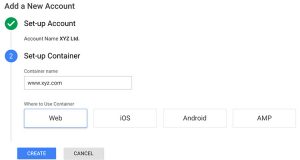IAB Tech Lab has published a detailed assessment of the Privacy Sandbox warning of major disruption for the advertising ecosystem. Updated with response from Google.
As currently consituted, Google Privacy Sandbox faces multiple challenges, said IAB Tech Lab in a new report. The report is a “fit gap analysis” designed to provide the industry with an understanding of how Google’s proposed solution will support the most basic and common use cases.
The Privacy Sandbox is intended to offer an alternative method of executing targeted digital advertising once third-party cookies are fully deprecated on the Chrome browser. The Privacy Sandbox initiative began in 2019 and, after proposing and then rejecting FLoC (federated learning of cohorts), seems to have settled on Topics as its targeting method.
“(T)he changes mandated by Privacy Sandbox will require substantial development and infrastructure investment costs for both buy and sell-side technology companies. Additionally, operational, business, financial, and legal processes for brands, agencies, and media companies will need extensive reworking.”
IAB Privacy Sandbox assessment
The key issues. IAB Tech Lab identified a number of problems advertisers and media companies may face using the proffered solution.
- Event-based impression and click metrics will be abandoned in favor of aggregated reporting. IAB Tech Lab says this will make bid loss analysis impossible.
- The implementation of an ad exchange and ad server itself will require significant changes within the programmatic advertising ecosystem, impacting reporting mechanisms, ad rendering and bid decisioning.
- With Chrome actively participating in the auction of ad inventory, “it poses great concern if Privacy Sandbox neglects legal and business requirements.”
This comes as the U.K. government’s Competition and Markets Authority warns that it will not allow cookie deprecation unless similar concerns are resolved.
Why we care. And you thought the only problem with Google’s initiative was that a few hundred topics cannot possibly represent a user’s interests with sufficient granularity to target them effectively? The Privacy Sandbox project will celebrate its fifth anniversary in August 2024, although perhaps “celebrate” is not the right word. Like the deprecation of cookies, it has been a stop-start-stop-again process; no wonder it is not commanding the confidence of the industry.
What’s more, Google is going to face increasing regulatory scrutiny as it — understandably — seeks to protect its main source of revenue, digital advertising, while dismantling one of the most important tools for reaching the right audiences.
Industry reactions. “The purpose of the report is likely not just to focus on an apocalyptic situation in a post cookie world, but to bring focus on elements that should be fixed prior to the complete elimination of third-party cookies,” said Katie Cladis, VP product at Digital Remedy. “My biggest concern is around the retooling that might be required for the ad rendering process and bidding capabilities — the heart of programmatic.”
Oleksii Borysov, VP product at MGID was scathing: “No one expected old digital advertising mechanisms to keep running unchanged after third-party cookie loss, but Google’s apparent failure to fill the gap with new, viable alternatives puts them at risk of coming to a shuddering halt. The IAB’s independent look at Privacy Sandbox has shown that its solutions are too raw and riddled with holes to function efficiently.”
Of course, Privacy Sandbox is not the only game in town. “There will be use cases for advertisers and publishers that aren’t solved by any one proposed solution,” said Adam Berkowitz, chief of staff at LiveIntent. “Publishers need to explore more solutions, and publishers need to control their destiny by embracing first-party data they leverage to their benefit, not the benefit of the walled gardens.”
Google responds. We received the following statement from a Google spokesperson:
“We always welcome input from the industry, however, IAB Tech Lab’s report includes dozens of fundamental errors, inaccuracies and instances of incomplete information. While we’re disappointed that IAB Tech Lab released the report in this state, we’re encouraged by the many IAB members who are actively building solutions using the Privacy Sandbox APIs. And we look forward to partnering with the IAB Tech Lab in transitioning the industry toward more private solutions.”
Email from Google
The full report can be accessed here.
The post IAB Tech Lab slams Google Privacy Sandbox appeared first on MarTech.
MarTech(12)
Report Post







